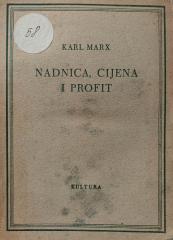Karl Marx
Karl Marx (1818–1883) was a German philosopher, political economist, historian and revolutionary socialist, best known as one of the founders of Marxism. He was born in Trier, in what was then Prussia, and studied law and philosophy in Bonn and Berlin. In his youth, he was influenced by German idealism, but later turned to a materialistic view of the world, under the influence of Ludwig Feuerbach.
Marx's most important work is Capital (Das Kapital), a fundamental analysis of the capitalist mode of production, where he presents theories about surplus value, exploitation and class struggle. Together with Friedrich Engels, he wrote the Communist Manifesto (1848), in which he called on the working class to unite and overthrow the capitalist system.
Marx spent much of his life in political exile, especially in London, where he wrote, analyzed economic data and collaborated with the international labor movement. His ideas had a profound influence on political theory, history, and social movements of the 19th and 20th centuries, including the creation of socialist and communist states.
He died in 1883 in London, and his legacy remains the subject of intense debate and interpretation.
Titles in our offer
Das Kapital. Buch II: Der Cirkulationsprocess des Kapitals. Dritte Auflage
Capital. Critique of political economy. Volume Two [Third Edition], with a preface by Friedrich Engels.
Das Kapital. Buch III: Der Gesammtprozess der kapitalistischen Produktion. Dritter Band, erster [und] zweiter Theil. Erste Auflage
Capital: A Critique of Political Economy. Third volume, first and second parts [First edition]. A rare first edition of one of the most influential books ever published.
Historija tajne diplomacije 18. stoljeća
Marxov tekst "Historija tajne diplomacije 18. stoljeća" koji se ne nalazi u izdanjima Marxovih i Engelsovih sabranih djela na njemačkom i ruskom jeziku, a nema ga ni u izdanju na hrvatskom ili srpskom jeziku.
Izabrana djela, knjiga 3
Izabrana djela, knjiga 4.
Kapital 3. - Kritika političke ekonomije
Kritika gotskog programa / Kritika nacrta erfurskog programa
Sa pismima Marksa i Engelsa sa tekstovima Lenjina o Marksovoj i Engelsovoj kritici

![Das Kapital. Buch III: Der Gesammtprozess der kapitalistischen Produktion. Dritter Band, erster [und] zweiter Theil. Erste Auflage](https://arka-knjiga.hr/static/images/books/b14921-1717497118559240.jpg)







